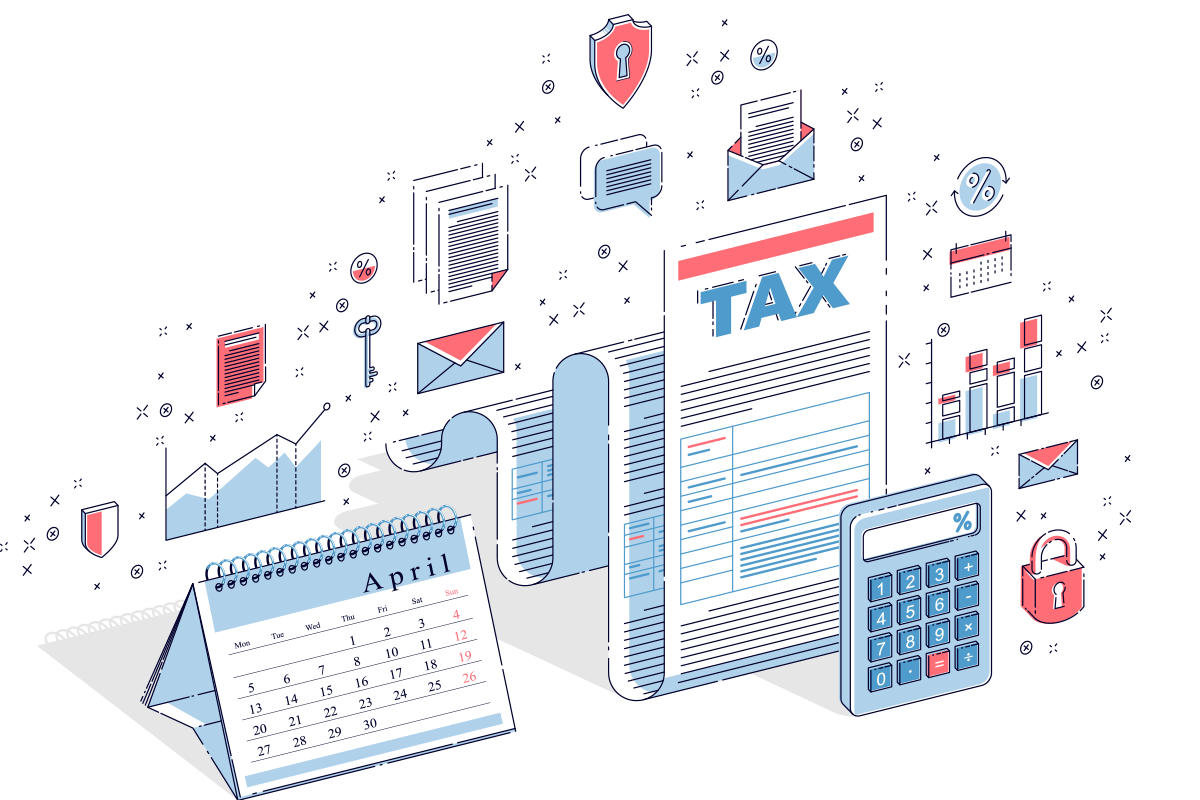10 changes you need to know before the end of the tax year
We list the tax changes that will make a difference to the money you have in your wallet from 6 April on…
25th March 2020 16:00
by Emma Lunn from interactive investor
We list the tax changes that will make a difference to the money you have in your wallet from 6 April onwards

1 You might pay less tax
About 31 million Brits will get a tax cut worth more than £100 from April. This is because the national insurance contributions’ threshold will rise from £8,632 to £9,500.
The threshold is the level at which taxpayers start to pay national insurance. Upping the threshold means the average full-time worker will see their tax bill cut by £104 a year, and by £78 a year for the average self-employed worker.
The Government says the move will “put more money into the pockets of ordinary, hard-working people”.
Ministers have set out plans to eventually raise the national insurance threshold to £12,500, which it says will save workers nearly £500 a year. The threshold changes will not affect low earners’ entitlement to contributory benefits such as the state pension.
2 The state pension will rise by 3.9% in April
Those on the new state pension – which covers people who reached state pension age after 6 April 2016 – will see an increase of £6.60 a week or £343.20 a year. This means the full state pension will be worth £175.20 a week, or £9,110.40 a year. This is a rise from £168.60 a week, or £8,767.20 a year.
Those receiving the basic state pension – which applies to those who reached state pension age before 6 April 2016 – will get an increase of £5.05 a week, taking their weekly pension income up to £134.25. This means they will get an extra £262.60 a year, giving them an annual income of £6,981.
The state pension rises each year by either 2.5%, the growth in average earnings, or by inflation – whichever is highest. Known as the triple lock, this system gives retirees a guaranteed rise in income every year. In this case, the state pension will be matching the 3.9% growth in average earnings seen by UK workers in July last year.
3 Some people will have their state pension reduced
However, despite the increase in the state pension, about 11,000 pensioners could be up to £3,500 a year worse off from April when the adult dependency increase (ADI) ends.
The ADI was given to pensioners with a financially-dependent spouse, but since 2010 the Government has been gradually phasing it out.
From 6 April 2020 it will cease to exist, which will leave some pensioners more than £3,500 a year worse off. According to a Freedom of Information request from insurer Royal London, more than 11,000 pensioners will lose out from this change.
Those claiming the maximum payment will receive £3,640 less over the course of a year. This reduces to £3,296 for those who receive the full new state pension increase for 2020-21.
4 The pension lifetime allowance will rise
The lifetime allowance is the maximum you can save into a pension before high tax charges apply. The allowance will rise in line with inflation from £1,055,000 to £1,073,000 in April.
Your pension benefits are tested against the lifetime allowance when you start to draw them from the scheme.
Having a pension pot of that size may seem like a nice problem to have, but going over the allowance results in a tax charge of 55% if you take the money as a lump sum, or 25% if you take it as income.
5 Inheritance tax on property will fall
Inheritance tax (IHT) is payable when the assets of a deceased person’s estate total more than £325,000. This is known as the nil-rate band. Any assets above £325,000 are liable to IHT at 40%.
In 2017, the Government introduced an increased nil-rate band for anyone passing on their main residence to their direct descendants.
The family home allowance has increased each year since the 2017-18 tax year when it stood at £100,000. The 2020-21 tax year sees the final increase up to £175,000. This means if you are leaving a property to your children or grandchildren, the nil-rate band is £500,000 (£325,000 plus £175,000). The move means couples will be able to leave property worth up to £1 million before the estate is subject to IHT.
On properties worth more than £2 million, homeowners will lose the allowance by £1 for every £2 they are over the limit.
6 Low paid workers will get a pay rise
The national living wage, the statutory minimum for workers aged 25 and over, will increase by 6.2% to £8.72 an hour from 1 April. This 51p rise means workers on the minimum wage will see their wages rise four times faster than the rate of inflation. The move means an annual pay rise of up to £930 for a full-time worker on the national living wage.
Workers aged 21 to 24 on the national minimum wage will see their hourly rate increase from £7.70 to £8.20, while those aged 18 to 20 will see a rise of 30p an hour to £6.45.
For people aged 18 and under, their hourly rate will go up by 20p to £4.55. The minimum wage for apprentices is also increasing from £3.90 to £4.15 an hour.
7 Buy-to-let will become less profitable
Mortgage tax relief for buy-to-let landlords has been gradually phased out since new rules were introduced in 2017. From 6 April, if you are a landlord you will not be able to deduct any mortgage expenses from your rental income to reduce your tax bill. Instead, you will receive a tax credit, based on 20% of your mortgage interest payments.
The move is especially punitive for higher-rate taxpayers, who effectively received 40% tax relief on mortgage payments prior to 2017.
8 New capital gains tax rules for second home owners

Landlords and property investors will also be affected by new capital gains tax (CGT) rules from April. CGT is paid on any profits made through the sale of a property that is not your main residence.
The rule change will affect how long you have to pay your capital gains tax bill, the amount of tax relief you can claim if you previously lived in the property, and how letting relief will work.
From April, sellers of second homes will need to pay their full CGT bill within 30 days of the completion of the sale. Changes to lettings relief might mean they also have more to pay.
Currently if you sell a residential property that used to be your main residence before you started renting it out, you can deduct ‘letting relief’ of up to £40,000 from any capital gain. But from April this relief will no longer be available unless you let part of the property while also living in it yourself.
At the moment the final 18 months of ownership of a property are treated as qualifying for principal private residence (so this part of the gain is exempt from tax). But this time period will be halved to nine months from April.
9 Contractors may pay more tax
If you’re a self-employed contractor, you may have to pay more tax from April when a piece of legislation called IR35 comes into effect. IR35 aims to stop workers who are effectively employees of a company fraudulently claiming to be contractors working for their own limited company in order to save on tax.
If you work as a contractor, the company you work for will need to decide your employment status. Firms in the public sector have had to do this since 2017 but from April private sector businesses will take on this responsibility too.
In practice, many contractors will find themselves on company payrolls and paying a similar amount of tax as permanent members of staff.
10 Probate fees won’t rise after all
April will see some good news for taxpayers as the Government has scrapped plans to hike probate fees. Probate fees give legal control of a deceased person’s estate to the executor of their will.
Changes to the probate fee structure were originally due to apply from April 2019, but were delayed until April 2020 owing to Brexit and Parliamentary time. But now the fee hikes – dubbed a ‘death tax’ – have been abandoned altogether.
Currently, a flat fee of £215 applies in England and Wales – or £155 if you use a solicitor – on estates worth more than £5,000.
Ministers planned to introduce a sliding scale of fees, with costs linked to the gross value of an estate. The move would have seen estates worth £2 million or more pay probate fees of £6,000, a £5,845 (3,770%) rise.
Critics argued that the cost of administering a grant of probate is the same regardless of the size of an estate – leading to the Government announcing in October 2019 that a sliding scale of fees wouldn’t be introduced in April 2020 after all.
This article was originally published in our sister magazine Moneywise, which ceased publication in August 2020.
These articles are provided for information purposes only. Occasionally, an opinion about whether to buy or sell a specific investment may be provided by third parties. The content is not intended to be a personal recommendation to buy or sell any financial instrument or product, or to adopt any investment strategy as it is not provided based on an assessment of your investing knowledge and experience, your financial situation or your investment objectives. The value of your investments, and the income derived from them, may go down as well as up. You may not get back all the money that you invest. The investments referred to in this article may not be suitable for all investors, and if in doubt, an investor should seek advice from a qualified investment adviser.
Full performance can be found on the company or index summary page on the interactive investor website. Simply click on the company's or index name highlighted in the article.